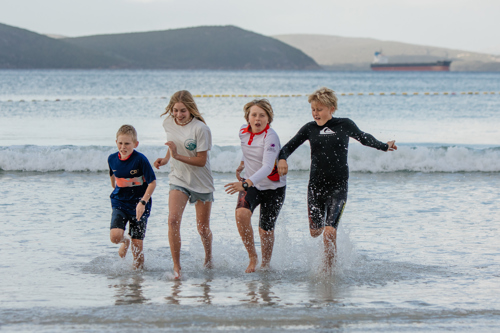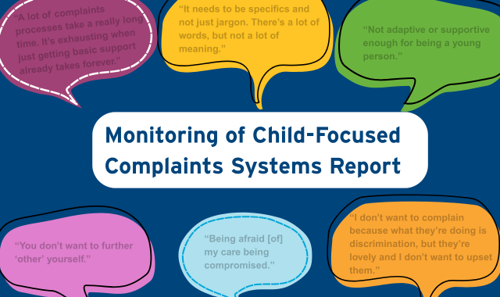Agency Performance - Powerfully share the voices of children and young people to influence change
Powerfully share the voices of children and young people to influence change
Sharing the voices of children and young people is not only powerful — it’s essential. When their lived experiences, ideas, and perspectives are amplified, they challenge assumptions, highlight gaps, and offer fresh solutions to complex issues.
Their voices help decisionmakers see the world through a different lens, one grounded in authenticity and hope. By elevating these stories, the Commissioner advocates for change that is informed, inclusive, and truly reflective of the needs and rights of young people.

Voting Age
Following the growing discussion and movement by organisations within Australia to lower the voting age to 16, our office wanted to provide young people with the opportunity to share their perspective on the topic. This led to our ‘Voting Age’ Survey. The survey reached almost 2000 young people, aged up to 24, from across Australia, with 1780 complete responses.
Key findings of the report included:
• More than half of participants under 15 would like to vote
• 49% of those think it should be optional, 12% think they should all have the right to vote and 39% did not want to vote at 16
• Of those aged 16+, 52% thought they should be able to vote at 16
• 31.5% of those think it should be optional, 20.6% believe it should be required at 16, leaving 48% against voting at 16.
For those who supported lowering the voting age, the reasons given included: young people contributing to society, being mature and capable, as well as the possible benefits lowering the voting age may have. Those against stated reasons such as, immaturity, lack of education, easily influenced, and wanting them to enjoy their childhood without this responsibility.
When young people were asked what topics were of concern to them, education, mental health, the environment and climate change were the topics most frequently chosen.
Belonging Across Borders
The ‘Belonging Across Borders’ survey was developed to provide an opportunity for WA children and young people from Culturally and Linguistically Diverse (CaLD) backgrounds to share their experiences on the challenges and highlights of immigrating to and living in Australia. The survey reached more than 1000 young people from across WA, with 576 complete responses. This statewide, anonymous online survey was accessible to anyone in Western Australia under the age of 18.
Children from CaLD backgrounds highlighted the need for additional education and services to help with their language development. They also felt that more could be done to promote inclusivity within schools and society, ensuring children from CaLD backgrounds are not
excluded, isolated, or singled out for being different. Racism was not only identified at an individual and community level, but also recognised at a systemic level in regard to access to educational and medical services, and our justice system.
Additional supports and information were suggested upon arrival in Australia. These suggestions were not only for children and young people, but for families immigrating to Australia. Many children and young people reported feeling unsafe which was attributed to increasing reports of violence in the media and in their surrounds.
Complaints
The ‘Monitoring of Child-Focused Complaints Systems Report’, released in May 2025, analysed the child focused complaint systems of government and community service organisations, an incredibly important recommendation from the Royal Commission into Institutionalised Responses to Child Sexual Abuse.
Through a series of focus groups and an online survey, children and young people shared their views with the Commissioner on child-friendly complaints systems. They emphasised the need for child-focused complaints systems that were safe, accessible, empowering and responsive.
Key findings of the report included:
• 63% of organisations were yet to take an intentional approach to developing child-focused complaints handling policies and processes for children and young people
• 29% did not promote their child-friendly complaints systems to children and young people
• 85% of organisations did not involve children and young people in the design, implementation or ongoing improvement of their complaints handling systems
• 55% of organisations did not have age or developmentally appropriate information and resources about complaint processes for children and young people.
More information about Agency Performance
Read the other pages in this chapter













